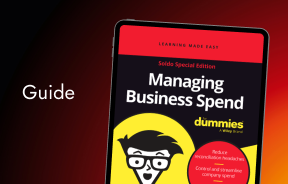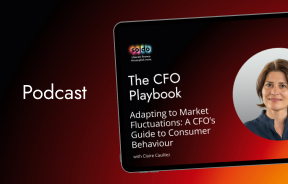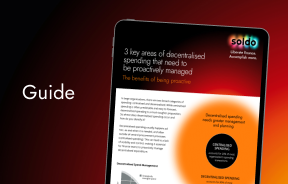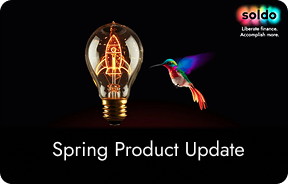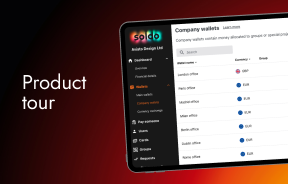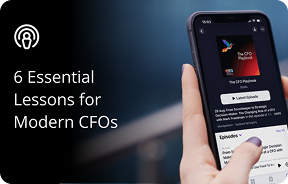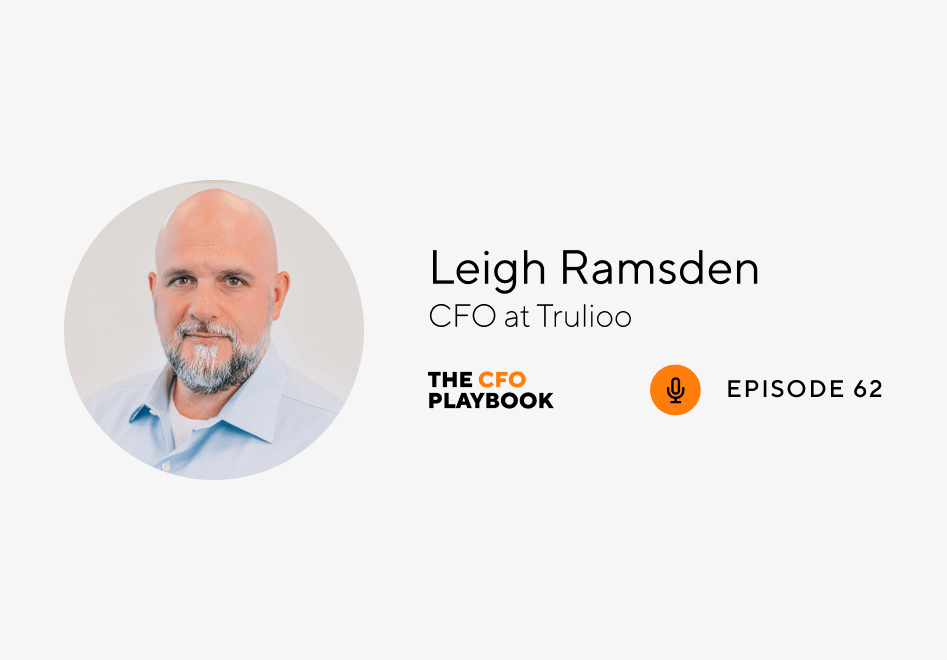Leigh Ramsden, CFO at Trulioo, has over 15 years experience as an accomplished financial leader, directing finance teams while implementing strategies and managing effective business processes to achieve corporate goals and maximize growth in high-volume environments. Throughout his career, he has been dedicated to providing informative, timely, and accurate internal and external financial reporting and metrics to enable data-driven decisions. Leigh prides himself on his ability to analyze complex problems in order to find pragmatic solutions while minimizing business and financial risk.
In the latest episode of the CFO Playbook, Leigh talks about what it takes to be a productive partner working alongside the CEO and the best ways to make that relationship work. He discusses the changes the pandemic has introduced to the finance world and stresses the impact that working from the office has on company culture. Leigh also explains the importance of being open to adopting new technologies to help advance the finance industry.
Working Alongside CEOs
The CEO of any company has a wide mandate to be in control of everything that is happening in their company. They need people to rely on that can help them oversee and support different parts of the business. As a CFO, you are a partner that provides a financial lens and context to the numbers. You need to be a trusted, informed, and strategic advisor to the CEO.
“You really have to get clarity from the CEO about what their expectations are. Depending on the individual, people have different interpretations of the same topics. So, getting clarity from that individual about what their expectations are really helps frame how you need to think about your role, and how you operate going forward.”
Refining Your Skillset
Having intellectual curiosity and getting an in-depth understanding of the business that you’re in is important. You need to have context and be able to explain the meaning of the numbers. Identify your strategies and understand the information that you need to provide to your company. If you don’t have the tools or staff to accomplish this, consider expanding your knowledge base or hiring people that can help fill the gaps.
“Taking stock of your skillset and understanding where you need to make improvements or learn, and then figuring out a plan to make it happen is really important. No one’s perfect in every area. Everyone has areas of strength and weakness. So, being thoughtful about making improvements, learning, or figuring out how you’re going to backfill some of those weaker areas is super important.”
Capitalize on Communication
People need to understand the finance function’s perspective. As a CFO, people are looking to you to provide insight into the business. You need to have a sense of what the future holds and have a clear grasp of what’s happening in the market. Improving the way you interact with the company and being able to provide financial insight and analysis, could help the company perform better.
“Think about your ability to communicate. I think a lot about knowing your audience and tailoring your messaging for your audience. A lot of financial professionals can understand the business and the underlying metrics. And, understanding all that’s very complicated by its nature and a lot of people have that ability of understanding. But, the job is really around simplifying it in a way that all people can understand, and that’s where you can really add a lot of value.”
Adapting to New Tech
It is challenging to bridge the gap between the norms and protocols of the past and the needs required for future success. You need to find the best ways to utilize the data that you have at your disposal to plan ahead. The finance world is continually evolving quickly. You need to put effort into learning about new technology and tools that can advance your team and increase efficiency and accuracy.
“I’m very open to having technology conversations now. I think you don’t know what you don’t know and learning about all the different tools that are available out there. You know, you’re doing yourself and you’re doing your organization a disservice if you’re not looking into it.”
Let us know what you think for a chance to win
Complete our short survey on The CFO Playbook for a chance to win either an 11-inch iPad Pro or a Samsung Galaxy Tab S7.









